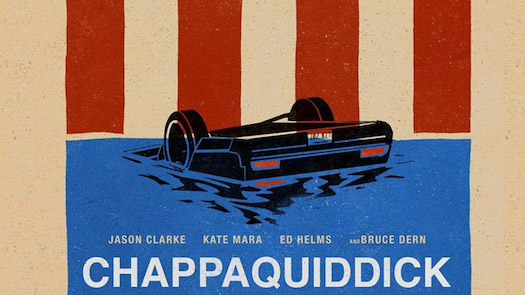In May, the Media Research Center’s Nicholas Fondacaro dismissed as old news reporting that revealed new details about the billions of dollars President Trump lost in the 1980s: “[D]id you feel like you already knew about that? So did everyone else, because Trump’s financial problems during that time were well documented.” Well, the MRC has insisted on pushing a story that’s even older news. (It’s done this before.)
One of the MRC’s big obsessions has been Ted Kennedy in general and Chappaquiddick particular. One extreme of this obsession, as we’ve documented, is how it has utterly refused to retract a false interpretation of quote by writer Charles Pierce regarding Mary Jo Kopechne, who died in the car Kennedy drove off a bridge in 1969, that it insisted praised Kennedy when, in fact, it was criticizing him.
In another example of trying to capitalize on old news, the MRC used the 50th anniversary of the Chappaquiddick incident to crank out more attacks.
Scott Whitlock cranked out a piece headlined “50 Years of Shame: How Journalists Protected Ted Kennedy After Chappaquiddick.” He repeated the MRC’s false attack on Pierce, whining that the quote it has deliberately misconstrued for 16 years came in a “mostly sympathetic profile” of Kennedy. He also complained that a film last year about Chappaquiddick — which the MRC heavily promoted and loved for its anti-Kennedy bias — didn’t get much media coverage, but he didn’t mention how the film tanked at the box office, earning a paltry $17 million.
An accompanying piece by Clay Waters complained that the 1969 moon landing obscured coverage of Chappaquiddick, which he claims “media watchdogs” — he omitted the “conservative” qualifier that obviously belongs there — blame on “media bias.” Apparently, Americans landing on another planet wasn’t as newsworthy as an incident conservatives wanted to exploit. Waters went on to whine that the New York Times panned the “Chappaquiddick” movie.
Even stories that are about other members of the Kennedy family must be reframed to be about Chappaquiddick. Whitlock returned in an Aug. 2 post expressing displeasure that a New York Times story about the tragic death of Robert Kennedy’s granddaughter didn’t make Chappaquiddick prominent enough in its “Kennedy family tragedy” list, huffing further that “none of these networks tried to lump in Chappaquiddick and Kopechne’s death as an example of a ‘tragedy’ for the Kennedys.”
Complaining that a story about a tragedy wasn’t reframed to be about another tragedy that’s more politically exploitable? Now that’s obsession.
